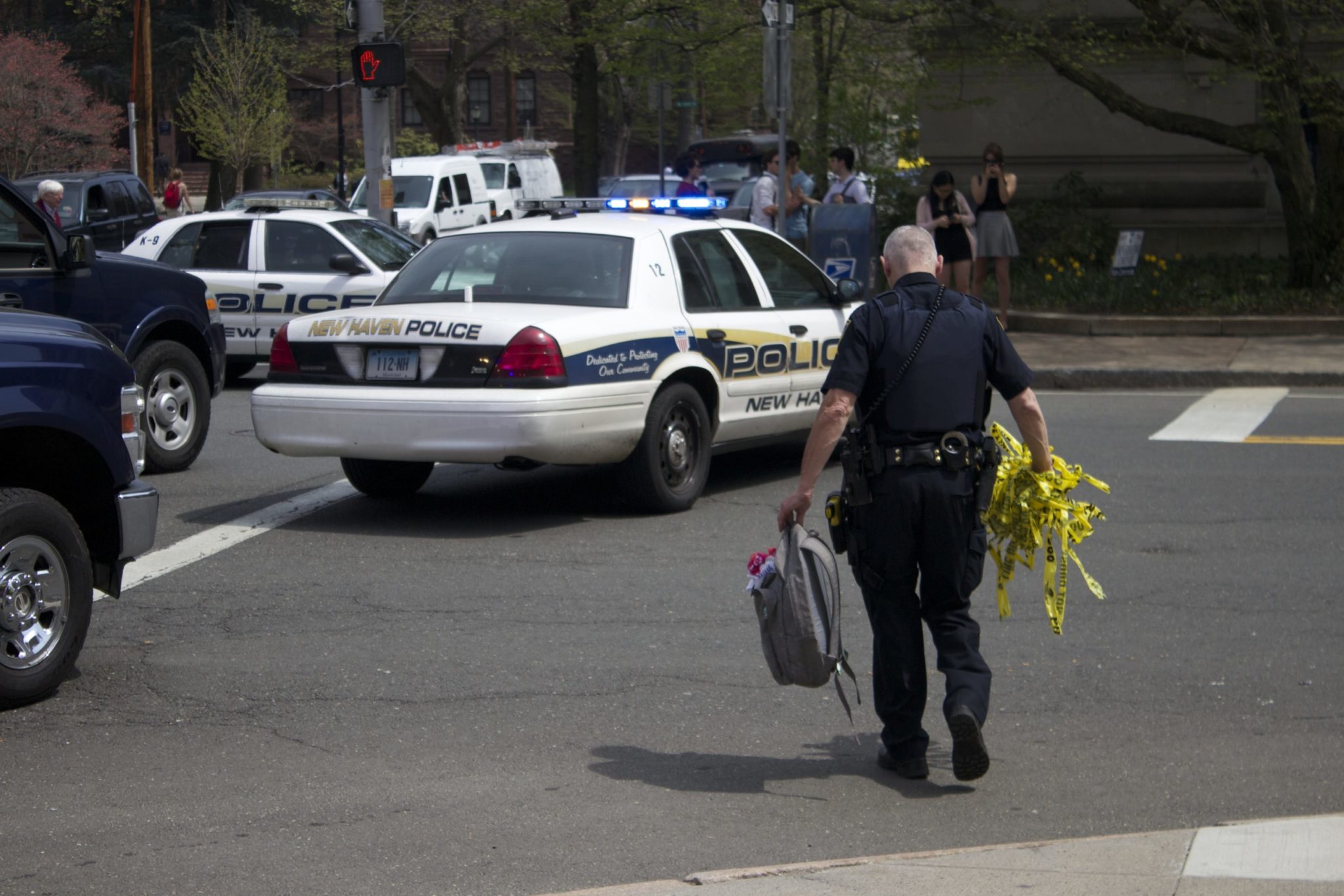
Yale Daily News
Fearing reduced protections for communities of color, New Haven officials and activists have pushed back against proposed changes to the use of force clause in Connecticut.
The changes would come as a part of the HB-6004, better known as Connecticut’s Police Accountability Law, which Gov. Ned Lamont signed in July. The law would impose tighter restrictions on circumstances where the police can inflict deadly use of force.
On Monday, the Connecticut Judiciary Committee voted to move forward with legislation that could postpone the use of force clause within the law’s implementation from April 1, 2022 to Oct. 1 of that year. The proposed postponement will now go to the house floor. Law enforcement officials have argued that a delay to the bill’s implementation would be needed to adequately train the nearly 9,000 police officers across Connecticut on the use of force modifications.
“Officers will need extensive training in the new techniques so that they do not run afoul of the new law,” Florencio Cotto, the president of the Police Officers Association of Connecticut and a New Haven police officer, said during the hearing.
Keith Mello, the chair of the Police Officer Standards and Training Council and chief of the Milford Police, said during the hearing that if the bill were to be implemented on April 1 of next year, the police force would not be ready. Mello said that the police would have to consider other alternatives to deadly use of force, which could endanger law enforcement officials.
State Representative Robyn Porter [D-New Haven] questioned the necessity of the amending bill. She worries that the proposed changes to the police accountability bill were only “wordplay” and told law enforcement officials that the accountability bill they seek to amend does not attempt to condemn the work of the police department but provide protection to communities of color.
Porter added that the use of force clause in HB-6004 must be implemented as quickly as possible because of policing practices that threaten the constituents of her district.
“I think it’s fair to say that [policing] looks different in New Haven than it does in Willimantic, or Easton or Cheshire,” Porter said during the hearing.
Barbara Fair of New Haven, a Connecticut Bail Fund board member, disagreed with the delay of HB-6004’s new implementations on use of force.
“They are simply being asked to behave more like guardians than warriors,” Fair told the News. “We can’t allow them to continue to kill with impunity.”
Though there has been some pushback on the implementation of the police accountability bill, New Haven-based civil rights lawyer Alex Taubes LAW ’15 told the News that he hopes the passing of the federal George Floyd Bill, which bans chokeholds and alters qualified immunity, will push Connecticut to make reforms to the criminal justice system. That bill has passed in the House and has yet to be debated on the Senate floor.
“Nationwide there’s a reckoning that needs to be happening with police departments, Taubes said. It’s a cooperative effort on the state and federal level.”
The police accountability bill was passed by the Connecticut legislature on July 29, 2020.
Razel Suansing | razel.suansing@yale.edu









